<< Previous | Displaying results 1181-1190 of 1275 for "Liberation" | Next >>
Leah grew up in Praga, a suburb of Warsaw, Poland. She was active in the Ha-Shomer ha-Tsa'ir Zionist youth movement. Germany invaded Poland in September 1939. Jews were forced to live in the Warsaw ghetto, which the Germans sealed off in November 1940. In the ghetto, Leah lived with a group of Ha-Shomer ha-Tsa'ir members. In September 1941, she and other members of the youth group escaped from the ghetto to a Ha-Shomer ha-Tsa'ir farm in Zarki, near Czestochowa, Poland. In May 1942, Leah became a courier…
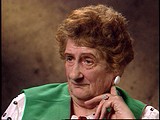
While Frima's family was confined to a ghetto, Nazis used her father as an interpreter. He later perished. By pretending not to be Jews, Frima, her mother, and sister escaped a German mobile killing unit massacre. They were later discovered and jailed. Again, her mother devised an escape. Frima's mother and sister were smuggled to Romania, while Frima wandered in search of safekeeping until her mother could arrange to smuggle her out. In Romania, they were reunited and liberated.
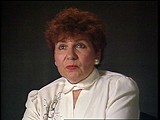
Ben was born in a small village in the Carpathian Mountains of Transylvania in Romania. When he was an infant, his family moved to the United States. Ben attended Harvard University, where he studied criminal law. Ben graduated from Harvard University Law School in 1943. He joined a US anti-aircraft artillery battalion that was training in preparation for an Allied invasion of western Europe. At the end of World War II in Europe, Ben was transferred to the war crimes investigation branch of the US Army. He…
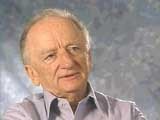
Thomas's family moved to Zilina in 1938. As the Slovak Hlinka Guard increased its harassment of Jews, the family decided to leave. Thomas and his family ultimately entered Poland, but the German invasion in September 1939 prevented them from leaving for Great Britain. The family ended up in Kielce, where a ghetto was established in April 1941. When the Kielce ghetto was liquidated in August 1942, Thomas and his family avoided the deportations to Treblinka that occurred in the same month. They were sent…
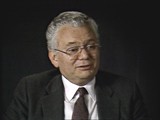
Irene and Rene were born Renate and Rene Guttmann. The family moved to Prague shortly after the twins' birth, where they were living when the Germans occupied Bohemia and Moravia in March 1939. A few months later, uniformed Germans arrested their father. Decades later, Irene and Rene learned that he was killed at the Auschwitz camp in December 1941. Irene, Rene, and their mother were deported to the Theresienstadt ghetto, and later to the Auschwitz camp. At Auschwitz, the twins were separated and subjected…
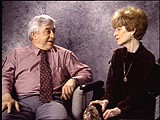
Both of Charlene's parents were local Jewish community leaders, and the family was active in community life. Charlene's father was a professor of philosophy at the State University of Lvov. World War II began with the German invasion of Poland on September 1, 1939. Charlene's town was in the part of eastern Poland occupied by the Soviet Union under the German-Soviet Pact of August 1939. Under the Soviet occupation, the family remained in its home and Charlene's father continued to teach. The Germans…
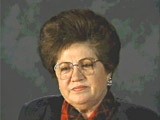
Henny was born into an upper-middle-class Jewish family in Kovno, Lithuania. She and her brother attended private schools. In June 1940 the Soviets occupied Lithuania, but little seemed to change until the German invasion in June 1941. The Germans sealed off a ghetto in Kovno in August 1941. Henny and her family were forced to move into the ghetto. Henny married in the ghetto in November 1943; her dowry was a pound of sugar. She survived several roundups during which some of her friends and family were…
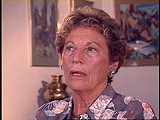
Excerpt from Holocaust survivor Abraham Bomba's oral history testimony describing gas chambers at the Treblinka killing center.
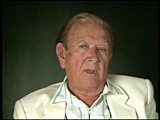
The Germans invaded Poland in September 1939. When Makow was occupied, Sam fled to Soviet territory. He returned to Makow for provisions, but was forced to remain in the ghetto. In 1942, he was deported to Auschwitz. As the Soviet army advanced in 1944, Sam and other prisoners were sent to camps in Germany. The inmates were put on a death march early in 1945. American forces liberated Sam after he escaped during a bombing raid.
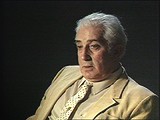
Norbert studied law and was a social worker in Berlin. He worked on the Kindertransport (Children's Transport) program, arranging to send Jewish children from Europe to Great Britain. His parents, who also lived in Berlin, were deported in December 1942. Norbert, his wife, and their child were deported to Auschwitz in March 1943. He was separated from his wife and child, and sent to the Buna works near Auschwitz III (Monowitz) for forced labor. Norbert survived the Auschwitz camp, and was liberated by US…
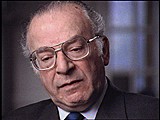
We would like to thank Crown Family Philanthropies, Abe and Ida Cooper Foundation, the Claims Conference, EVZ, and BMF for supporting the ongoing work to create content and resources for the Holocaust Encyclopedia. View the list of donor acknowledgement.